Shopify is the heavy hitter in today's ecommerce world but at one point Yahoo! was the only reasonable option when it came to selling products online without much development experience. Therefore, it's time to match up Shopify vs. Yahoo Ecommerce and see which one comes out on top.
As the publisher of an ecommerce industry blog, I am somewhat nostalgic and emotionally charged to be reviewing the Yahoo Ecommerce ecommerce platform. Yahoo! happens to be the first company that brought an ecommerce store building platform out to the masses in a big way, back in 1998. They did this by way of acquiring a company called Viaweb that was founded in 1995 by Paul Graham, Robert Tuppen Morris, and Trevor Blackwell.
Viaweb was actually the first-ever web app that allowed users with little technical chops to create and host online storefronts.
Some years after the Viaweb acquisition, Paul Graham (one of the founders) went on to start an Internet idea incubator/angel investment fund with a unique twist, under the name of YCombinator that continues to seed dozens of Internet startups from its silicon valley facility each year even today.
Since the acquisition of Viaweb, Yahoo! has morphed and evolved this ecommerce platform several times, with the most current version called Yahoo Ecommerce. Since it's a direct competitor to Shopify, it's time to see which one is more friendly for the user.
Before going into the actual, feature-by-feature comparison of Yahoo Ecommerce with Shopify, you might want to check out my full and exclusive ultimate Shopify review and Shopify Pricing guide as well.
Now, onto the Shopify vs. Yahoo Ecommerce platform comparison:
Shopify vs. Yahoo Ecommerce: Features
The features for Shopify are hard to match, but Yahoo Ecommerce has lots of years behind it. The only problem is that it's been plagued by so many acquisitions and the fact that Yahoo! has focused on so many different things. Shopify, on the other hand, only runs as an ecommerce platform. Therefore, all of its development power has gone into that. The Yahoo Ecommerce features are great for beginners, but the power just isn't there as you'll see below.
Basic online store functionality – Both platforms offer robust basic features and functionalities for creating a good online store. Shopify, however, as a dedicated, single-service ecommerce platform, has at least a slight edge over Yahoo Ecommerce. With Yahoo Ecommerce, you can quickly add products to the store, accept all sorts of payments and combine with many shipping integrations, but that's about it. Shopify has everything from coupons to abandoned cart recovery. Even the most basic store tools include options like discounts, advanced navigation, full blogging and more.
With Yahoo Ecommerce, you can quickly add products to the store, accept all sorts of payments and combine with many shipping integrations, but that's about it. Shopify has everything from coupons to abandoned cart recovery. Even the most basic store tools include options like discounts, advanced navigation, full blogging and more.
Inventory management – Both platforms allow for unlimited products and unlimited bandwidth, regardless of the plans you choose. The same goes for bulk product imports and exports. I like the Shopify inventory management area much better, however, since the Yahoo interface looks a bit intimidating for users. And I've had problems uploading and creating new products where they don't save properly.
I like the Shopify inventory management area much better, however, since the Yahoo interface looks a bit intimidating for users. And I've had problems uploading and creating new products where they don't save properly.
Calculation of shipping charges – This is one of the most basic and must-have features for an ecommerce app, and not surprisingly, both Shopify and Yahoo Ecommerce handle this quite efficiently.
Coupons and discount codes – Shopify doesn't have coupons or discount codes in the Lite plan, but these are offered when you move into the primary plans. Yahoo, on the other hand, lacks this functionality. You'll have to install an app for this.
Payment gateway options – Shopify wins the race by a wide margin here, with 70 supported payment gateway options as compared to just one offered by Yahoo Ecommerce. Furthermore, for using even the one single payment gateway offered by Yahoo, you must have your own merchant account – something you can avoid when using Shopify.
Multi-lingual capabilities – At a slight advantage, Shopify offers partial multi-lingual support by allowing you to create checkout pages in multiple languages. For implementing store-wide multi-lingual capabilities, you can use third-party apps. Yahoo Ecommerce does not provide multi-lingual capabilities.
SEO capabilities – Naturally, Yahoo Ecommerce would not take second place to any platform since it is a service offered by one of the oldest search engines. Still, Shopify holds its own on this, with top-of-the-line SEO features and capabilities, as described in detail in my article on best ecommerce platforms for SEO.
Blogging functionality – This happens to be a very important feature for an ecommerce store today since a blog allows you to add content to your store at will – something that is highly beneficial for SEO. Shopify wins here by providing integrated blog publishing functionality. With Yahoo Ecommerce, you have to resort to (expensive) third-party options.
Shopify vs. Yahoo Ecommerce: Ease of use
Both Yahoo Ecommerce and Shopify are fairly easy to use ecommerce platforms.
Themes and Templates – Both platforms are tied here, with hundreds of free, as well as paid/premium, themes that you can use to setup your store. While the Yahoo themes were generally described as ‘ugly' in the past, this has changed for the better in their latest incarnation, with all themes looking fairly modern and stylish.
Another important point to be noted here is that both of the platforms offer a good number of responsive themes (to display your store properly on different kinds of access devices). This is an area where Yahoo Ecommerce used to be a very low performer – something they have improved upon in their recent revisions.
Needless to say, the Shopify theme store has hundreds of choices, and all of them look beautiful. Not to mention, they are all categorized by industry for easy selection.
Customization capabilities – Both platforms allow you to customize the basic elements of your store easily using menu-driven and somewhat watered down drag-and-drop methods.
Shopify and Yahoo Ecommerce both have their own unique coding languages. Therefore, this makes it tricky for an advanced developer who wants to work with HTML and CSS. In general, you'll have to learn the distinct languages or hire someone to do it for you.
Also, an update: Shopify now allows you to hide certain sections within the theme editor without having to remove them. Hidden sections will still be customisable in the theme editor but not visible on the store.
This change was made to allow you to start sections for future releases and remove the need for theme duplications.
Shopify vs. Yahoo Ecommerce: Apps and Add-ons
Again, Shopify is at an advantage with the availability of more than a hundred apps (both free and paid) with which you can beef up your store in various ways.
The app number is limited to about 44 in the case of Yahoo Ecommerce. They have categories for finance, conversions, advertising and more, but the app count just isn't there.
Shopify vs. Yahoo Ecommerce: Pricing
Setup fees – Neither Shopify nor Yahoo Ecommerce charge any setup fees. However, Shopify offers a 14-day free trial while Yahoo Ecommerce is probably one of the only major ecommerce platforms that do not offer any free trial.
Monthly fees – Shopify offers four different plans with monthly fees ranging from $9 to $299 as follows:
| Lite Plan | $ 9 /mo. |
| Basic Shopify Plan | $ 29 /mo. |
| Shopify Plan | $ 79 /mo. |
| Advanced Shopify Plan | $ 299 /mo. |
Shopify also has an Enterprise Plan, but that's completely custom and you'll have to contact Shopify.
You can start a free Shopify trial by clicking here.
Yahoo Ecommerce offers three plans, with monthly fees ranging from $29 to $299, as listed below (you should note that all plans have to be paid for annually, upfront):
| Basic Plan | $ 29 /mo. |
| Professional Plan | $ 79 /mo. |
| Premier Plan | $ 299 /mo. |
| Enterprise | .Custom |
Buy a Yahoo Ecommerce account by clicking here.
Bandwidth charges – Neither of the platforms charge any bandwidth usage fees on any of their plans.
Transaction fees – Shopify does not charge any transaction fees if you use their own payment gateway. If you use any of the third-party gateways, Shopify's transaction fee structure is as follows:
| Lite Plan ($9/mo.) | 2% |
| Basic Shopify Plan ($29/mo.) | 2% |
| Shopify Plan ($79/mo.) | 1% |
| Advanced Shopify Plan ($ 299 /mo.) | 0.5% |
The transaction fee structure at Yahoo Ecommerce is as follows:
| Basic Plan ($29/mo.) | 1.5% |
| Professional Plan ($79/mo.) | 1% |
| Premier Plan ($299/mo.) | 0.75% |
| Enterprise | Custom |
Shopify vs. Yahoo Ecommerce: Who Wins?
With Yahoo's massive market capitalization of over $30 billion and Shopify hardly a blip on the radar, one would not be at fault in thinking that Yahoo Ecommerce would be a far superior product compared to Shopify.
However, Shopify outperforms Yahoo Ecommerce in several important areas such as ease of customization, payment processing, blogging capabilities and others. Therefore, despite Yahoo's brand image and omnipresence, I find it difficult to recommend Yahoo Ecommerce as an ecommerce platform today.
To get started with a free Shopify trial, click here.
For purchasing a Yahoo Ecommerce account, click here.
Have you had any experience with either of these platforms? Please share your views or questions using the comment form below.

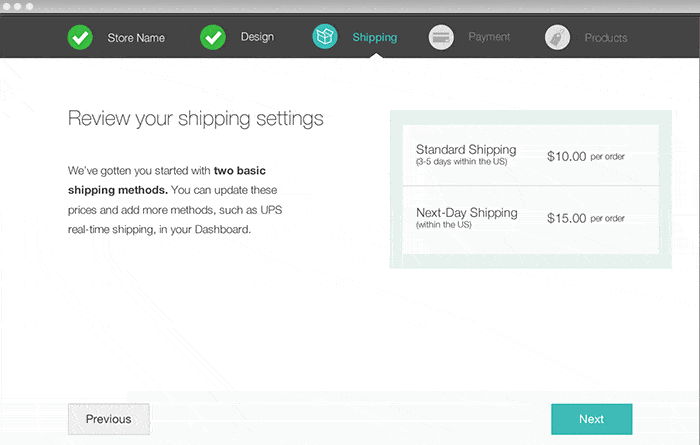
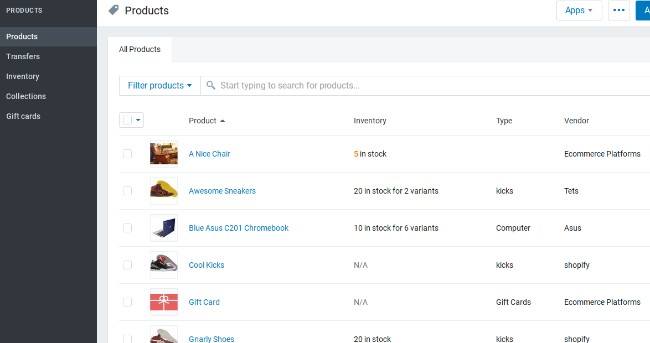
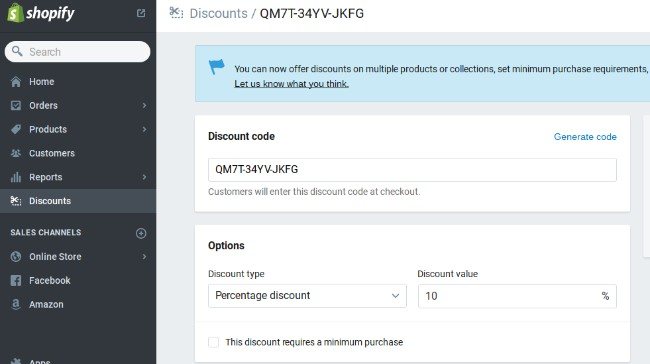

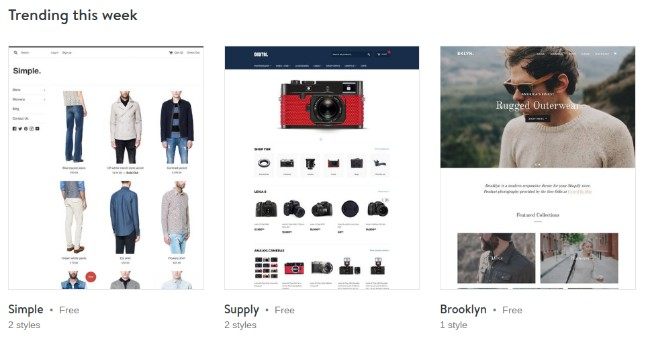

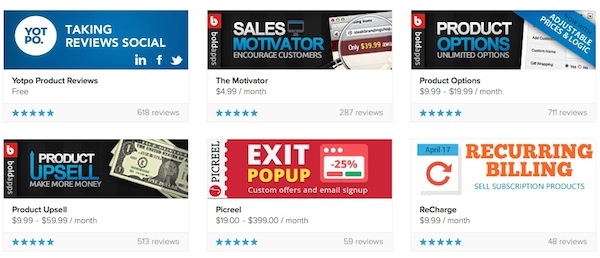
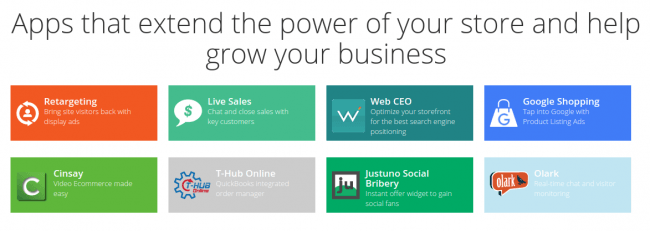
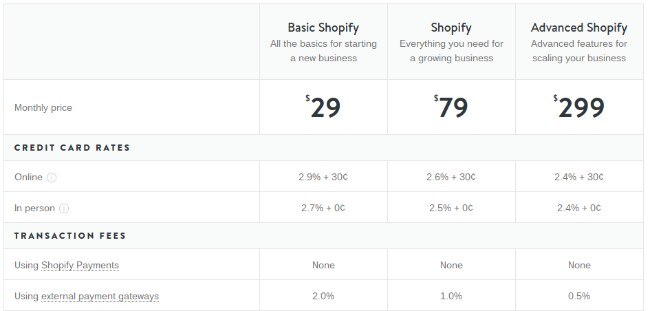



I’ve had a Yahoo store since January 2008. I chose it at the time because I thought “Yahoo, they should be the best ecommerce platform.” Wow, was I wrong. They hardly updated at all for many years. The updates still are few and far between (as of April 2017). They could develop so much more functionality and ease of use for today’s level of technology that they should be ashamed that they don’t. I’ve spent thousands of dollars customizing my online store to get good functionality and capabilities for the customer experience and there’s still more that can be done. And, as you point out, I have to use specialized RTML programmers to do all this. I guess you get the point by now, I’m not a fan but I’m kind of “stuck” since I’ve spent so much for customization, and I don’t want to spend again to change. However, since I have spent so much, at least it’s a well functioning store now, although, I’d like it not to be so expensive to keep having to customize it to make it better when I think Yahoo, now Aabaco Small Business, should do this in order to keep up with technology.
WOW Ed, your dead on 100% accurate with your comments. I’m in about the exact same situation and experiencing the exact same things. I’ve been stuck whenever needing web design and revisions because of Yahoo store and RTML. Customization seems to have been more of a disadvantage than a big advantage. And now with the takeover of Yahoo stores by Aabaco, i feel things are not any better at all. I hear that Yahoo store owners are bailing because of Aabaco, and i too am seeking a reasonable
viable alternative. Shopfiy comes up often but i don’t know what direction all the Yahoo merchants are going and would be sure curious to see. Also, if i did go to Shopify, is there someone i can hire for any areas that i get stuck with building the new store ?? Many question and uncertainties here. Thanks for your input in advance.
For what it’s worth, Yahoo had no idea what to do with Yahoo Store for quite some time. As a result, it became stagnant for quite some time. Nite that it’s become Aabaco, I think things will change.